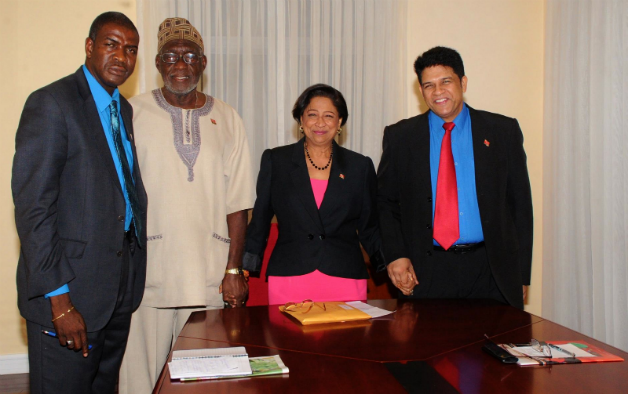"How do we understand the identity of parties in a coalition?"
May 7 Across the globe, many countries are grappling with the challenge of coalition government. This unique political dynamic merits greater attention by the Commonwealth, argues Joshua Hamlet, 24, a Commonwealth Correspondent from Trinidad & Tobago.
Across the globe, many countries are grappling with the challenge of coalition government. This unique political dynamic merits greater attention by the Commonwealth, argues Joshua Hamlet, 24, a Commonwealth Correspondent from Trinidad & Tobago.
The Commonwealth’s existence is based on the promotion of the shared goals of democracy and development among its member states. Historically most nations in the organisation were former colonies of the Empire of Britain, and as a result governance styles and political structures across these nations still bear the hallmark of British influence.
But there is also the influence of coalition politics within and outside of party structures. The Commonwealth Parliamentary Association (CPA) has observed that the recent coalition trend began in India, then in Africa and lately within the Caribbean region.
But how do we understand the identity of different political parties in coalition governments? Internal party elections allow leadership roles to change and challenge the ability of the new leadership to follow the path of the old.
In my country, Trinidad and Tobago, simmering tensions within the leadership of the People’s Partnership administration offers us a suggested agenda item for the next CPA Annual Conference. Congress of the People (COP) elections in late 2011 gave way to Prakash Ramadhar as the new political leader with the mandate to balance the coalition and keep the values of the COP strong. Then, in March, United National Congress (UNC) internal elections included a ‘crossing of the floor’ between the COP to UNC of a prominent member.
Such a move brings into question the unity of the coalition as well as Mr. Ramadhar’s resolve to separate the COP as unique as well as walk the thin line of being in coalition and not be absorbed by it.
In my view, in light of this example from Trinidad and Tobago, the Commonwealth needs to examine election dynamics between coalition governments to prevent situations of “Till elections do us part”.
On the surface, switching parties within a coalition should be a simple process, however it raises the question of division of roles, leveraging of capabilities and leadership dynamics. Successful coalition governments have a fair balance of each party needing one another equally. Recent position negotiations show that this is not the case within the People’s Partnership.
Uneven leveraging capabilities create a perception that member parties are required to either toe the line or their voices are not appropriately heard. A coalition’s longevity becomes a contentious issue that the Commonwealth should address as a part of its mission to encourage adequate governance structure.
Coalition governments tend to be elected with a high approval rating, however they fail to maintain a steady rating. Recent poll ratings in Britain and Canada – showing a decrease in Prime Minister Cameron’s performance as well as a diminishing of the Bloc Quebecois – demonstrate the complex demands on coalition government within the twenty-first century.
With coalition politics rife across influential Commonwealth sates like India, Australia, as well as in the African continent, the CPA should emphasise the importance of coalition dynamics and provide measures to assist coalition governments.
…………………………………………………………………………………………………………………
About me:
In life my goal is to inspire and motivate. My passion lies in youth mobilization with particular focus on politics. I am a spontaneous person and yearn for new experiences. My articles reflect my academic orientation as well as experiences that define my life. The goal is honesty, to applaud where needed and scold where required. I recently graduated.
…………………………………………………………………………………………………………………
Opinions expressed in this article are those of the author and do not necessarily represent the views of the Commonwealth Youth Programme. Articles are published in a spirit of dialogue, respect and understanding. If you disagree, why not submit a response?
To learn more about becoming a Commonwealth Correspondent please visit: http://www.yourcommonwealth.org/submit-articles/commonwealthcorrespondents/




